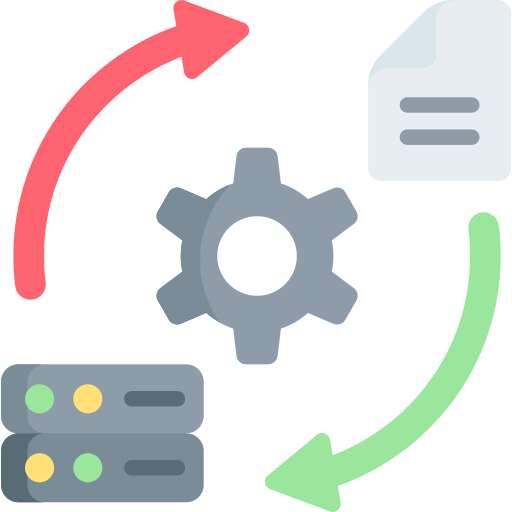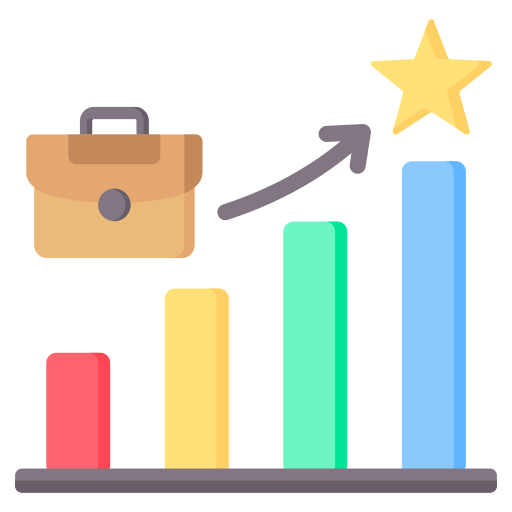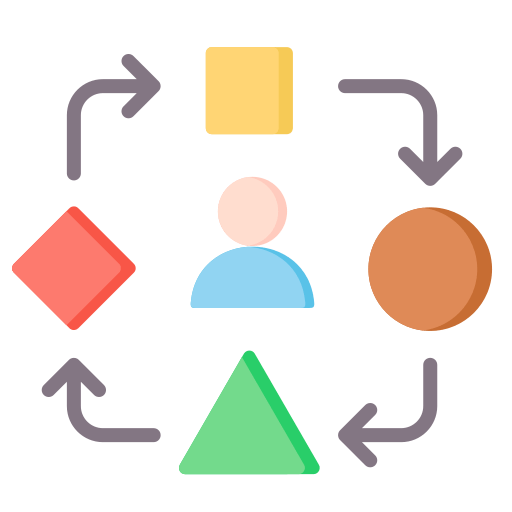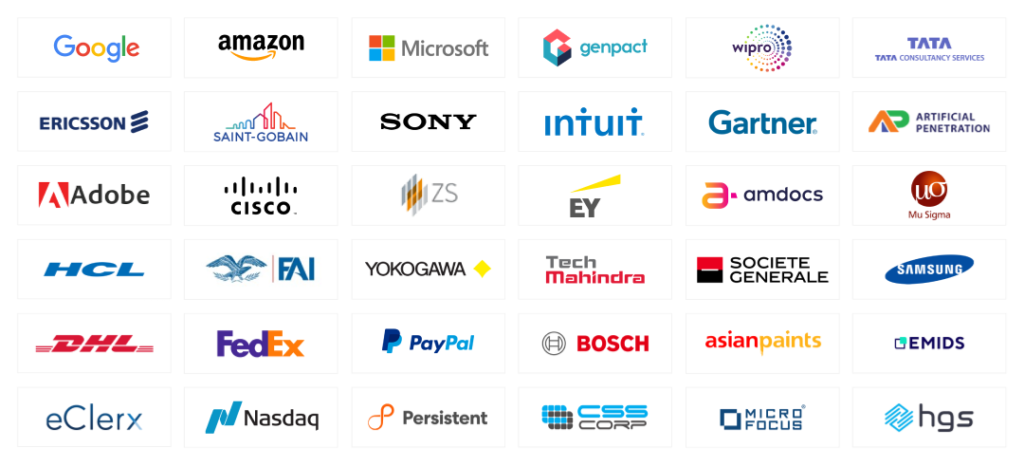Home » Data Analyst 6 month Certification program
Transform Your Career with 6 Months Data Analyst Certification Course
The Data Analyst Expert Certification Program is a thorough course that integrates the latest techniques in data analysis and data science. It’s tailored to equip professionals with advanced skills for efficiently managing and interpreting complex data sets in modern IT environments.
In collaboration with

Aryavart Institute Technology
- Program Duration: 6 months
- Learn from Industry Experts.
- Collaborative Learning Environment
Key Highlights

Comprehensive Curriculum

Expert Instructors

Community Access

Hands-on Experience

Career Support

Certification

Advanced Tools and Technologies

Flexible Learning

Continual Learning Resources
About the program
This program is designed to equip participants with advanced knowledge and practical skills in data analytics. It covers a comprehensive range of topics, including data collection, data processing, statistical analysis, data visualization, and machine learning.
Participants will benefit from a blend of lectures, hands-on exercises, and real-world projects, all facilitated by industry experts. The curriculum is carefully crafted to ensure a deep understanding of key concepts and the development of essential skills needed to excel in today’s fast-evolving data analytics landscape.
Upon completion of the program, participants will earn a certification that validates their expertise in data analytics, enhancing their career opportunities in the field. With a strong focus on practical application and industry relevance, this program provides participants with the tools and knowledge necessary to succeed in the dynamic world of data analytics.
Transitioning to a new career
A student who has experience working in retail might transition to a data analyst role by leveraging their understanding of customer behavior, sales trends, and inventory management. By acquiring data analysis skills, they can analyze sales data, identify patterns, and make data-driven recommendations to optimize pricing strategies, inventory levels, and marketing campaigns.
Aarav Patel
An administrative assistant may transition to a Business Data Analyst role by enhancing their skills in data collection, organization, and analysis. They can leverage their experience with managing databases, generating reports, and handling administrative tasks to excel in roles that involve data cleaning, visualization, and interpretation. This transition allows them to contribute insights to decision-making processes within organizations.
Neha Sharma
A student with a background in academic research may transition to a Financial Data Analyst role by building upon their research skills and incorporating data analysis techniques. They can apply their expertise in data collection, literature review, and statistical analysis to roles that involve conducting surveys, analyzing research data, and generating insights for academic or industry research projects.
Vi kram Singh
A student working in customer service can transition to a Marketing Data Analystrole by developing skills in data analysis and interpretation. They can utilize their understanding of customer needs, communication skills, and problem-solving abilities to analyze customer feedback data, track customer satisfaction metrics, and identify areas for improvement in products or services. This transition enables them to contribute to customer-centric decision-making processes within organizations.
Priya Menon
Aisha Desai with experience in marketing coordination can transition to a Big Data Analyst role by acquiring skills in data analysis and interpretation. They can leverage their knowledge of marketing strategies, campaign management, and market research to analyze marketing data, track key performance indicators, and evaluate the effectiveness of marketing campaigns. This transition allows them to provide valuable insights for optimizing marketing strategies and achieving business objectives.
Aisha Desai

Professional Growth and Development

Increased Opportunities and Advancement

Alignment with Personal Goals and Values

Adaptability and Resilience:
Who Can Apply for the Course?
- People who recently finished college and want to start a career in working with data.
- Those already in jobs like business analysis or finance who want to get better at using data for their work.
- Anyone looking to change careers and move into a field where data analysis is important.
- Freelancers or small business owners who want to understand their data better to improve their services or products.
- Basically, anyone who finds data interesting and wants to learn how to use it in a practical way.

Roles That DevOps and Cloud Computing Professionals Can Fulfill
Business Analyst
Data analysts often work closely with stakeholders to analyze business processes, identify areas for improvement, and make data-driven recommendations to enhance efficiency and productivity.
Market Research Analyst
Data analysts collect and analyze market data, consumer behavior, and competitor information to provide insights that help companies understand market trends, identify opportunities, and make informed decisions about their products or services.
Financial Analyst
Finance data analysts analyze financial data for strategic planning, budgeting, and risk assessment. They evaluate investment performance and develop models for forecasting and decision-making.
Healthcare Analyst
Healthcare data analysts analyze patient data, outcomes, and costs to improve care and processes. They identify trends and work on projects for better population health management and quality improvement.
Operations Analyst
Operations data analysts optimize production, supply chain, and inventory data to cut costs. Using statistics and predictive analytics, they enhance efficiency and streamline processes.
Data Scientist (Junior Level)
Data analysts with advanced skills in statistical analysis, machine learning, and programming may work as junior data scientists, applying advanced analytical techniques to solve complex problems and extract insights from large datasets.
Skill Covered
Data Collection
Data Transformation
Big Data Tools (Hadoop, Spark)
Descriptive Statistics
SQL
PowerBI
Hypothesis Testing
Python
Data Mining
Data Visualization
R Programming
Data Wrangling
Machine Learning
Tools Covered









Curriculum
Week 1: Introduction to Data Analytics
- Overview of Data Analytics
- Importance in various industries
- Career paths and opportunities
Week 2: Excel for Data Analytics
- Data entry and formatting
- Basic formulas and functions
- Pivot tables and charts
Week 3: Introduction to SQL
- Database concepts
- Basic SQL queries (SELECT, WHERE, JOIN)
- Data manipulation (INSERT, UPDATE, DELETE)
Week 4: Data Visualization with Excel and Introduction to Python
- Creating visualizations in Excel
- Basic Python programming
- Using Jupyter Notebooks
Week 5: Advanced Excel Functions
- Advanced formulas and functions
- Data analysis tools (Solver, Analysis ToolPak)
- Macros and VBA basics
Week 6: Advanced SQL
- Complex queries
- Subqueries and CTEs
- Indexes and performance optimization
Week 7: Python for Data Analysis
- Introduction to Pandas and NumPy
- Data manipulation and cleaning
- Basic data visualization with Matplotlib and Seaborn
Week 8: Data Wrangling and Transformation
- Handling missing data
- Data transformation techniques
- Combining and merging datasets
Week 9: Data Visualization with Python
- Advanced visualization techniques
- Customizing plots with Matplotlib and Seaborn
- Interactive visualizations with Plotly
Week 10: Introduction to Tableau
- Tableau interface and basics
- Creating dashboards
- Advanced visualization techniques
Week 11: Reporting and Presentation Skills
- Effective communication of data insights
- Creating reports and presentations
- Storytelling with data
Week 12: Power BI for Data Visualization
- Introduction to Power BI
- Data modeling and DAX
- Creating interactive dashboards
Week 13: Descriptive and Inferential Statistics
- Measures of central tendency and dispersion
- Probability distributions
- Hypothesis testing
Week 14: Introduction to Machine Learning
- Machine learning concepts and workflow
- Supervised vs. unsupervised learning
- Model evaluation and selection
Week 15: Regression Analysis
- Linear regression
- Multiple regression
- Model diagnostics and performance metrics
Week 16: Classification Techniques
- Logistic regression
- Decision trees
- Model evaluation metrics
Week 17: Introduction to Big Data
- Big data concepts
- Overview of Hadoop and Spark
- Use cases and applications
Week 18: Working with Spark
- Introduction to PySpark
- Data processing with Spark
- Machine learning with Spark MLlib
Week 19: Cloud Computing for Data Analytics
- Introduction to cloud platforms (AWS, Azure, GCP)
- Data storage and processing in the cloud
- Using BigQuery and other cloud-based tools
Week 20: Advanced Python Libraries
- Advanced data manipulation with Pandas
- Time series analysis
- Geospatial data analysis
Week 21: Capstone Project Proposal
- Identifying a real-world problem
- Data collection and preprocessing
- Project planning and milestones
Week 22: Capstone Project Development
- Data analysis and visualization
- Model building and evaluation
- Iterative improvements
Week 23: Special Topics in Data Analytics
- Data ethics and privacy
- Emerging trends in data analytics
- Industry case studies
Week 24: Capstone Project Presentation and Course Wrap-up
- Finalizing the capstone project
- Presenting findings to peers and instructors
- Course review and next steps in career
Are you interested in this program? Reserve your spot now!
All fields are required to be filled*
Projects
Projects will be an integral part of your Data Analyst program, allowing you to consolidate your learning. These projects will ensure you gain real-world experience in Data Analytics.
Evaluate the effectiveness of a marketing campaign and optimize future campaigns. This involves analyzing campaign data to determine the conversion rate, comparing the performance of different marketing channels, segmenting customers based on demographics and behavior, visualizing key metrics and performance indicators, and suggesting improvements for future campaigns.
Create a scalable and secure storage solution in Azure that meets the diverse needs of an enterprise application. This includes deploying different types of Azure storage accounts, configuring data access, and ensuring data redundancy and security.
Analyze social media data to understand public sentiment about a brand or product. This project involves collecting data from social media platforms (e.g., Twitter, Facebook), cleaning and preprocessing the text data, performing sentiment analysis using natural language processing (NLP) techniques, visualizing sentiment trends over time, and providing insights on public perception and suggesting ways to improve brand image.
Analyze financial data to assess the financial health of a company. Tasks include performing data cleaning and preprocessing, conducting ratio analysis (e.g., profitability ratios, liquidity ratios), creating visualizations to show financial trends, building a predictive model to forecast future financial performance, and providing a comprehensive financial report with insights and recommendations.
Placement Target Companies

Admission Details
The application process involves three straightforward stages. Admission offers will be extended to chosen applicants following evaluations by the interview panel. Successful candidates will receive notifications via email and phone, and they can secure their positions by paying the admission fee.

STEP 1: Submit Application
Please provide some information about yourself and explain your interest in joining this program.

STEP 2: Application Review
A selection committee will identify candidates for further consideration based on their application.

STEP 3: Admission
Chosen candidates will receive notifications within 1-2 weeks.
Data Analyst Certification Course Program Fee
Total Admission Fee
₹ 80,000
- Transparent pricing structure with no hidden costs.
- Affordable options to suit various budgets.
- Flexible payment plans available for convenience.
- Comprehensive curriculum.
- Easy zero-cost EMI.
- Dedicated support.
Frequently Asked Questions
Your certificate will be issued electronically and sent to your registered email address upon successful completion of the program.
This course offers a comprehensive curriculum, hands-on training, expert-led sessions, and certification upon completion, all of which are valuable assets for advancing your career in cloud computing.
If you miss a lecture, recordings will be provided for review, and you can catch up with the material at your convenience. Additionally, you can reach out to the instructor or support team for any clarifications.
Upon completion of the program, you will be eligible to take certification exams from recognized bodies such as AWS, Microsoft Azure, or other relevant organizations, depending on the course content.
Our refund policy allows for a full refund within a specified timeframe if you decide to withdraw from the program. Please refer to the program terms and conditions for detailed information on our refund policy.
Yes, we offer a batch deferral option for students who are unable to continue with their current cohort. You can defer your enrollment to a future batch subject to availability and program terms.

Analyze sales data from a retail store to identify trends, patterns, and insights. This project involves cleaning and preprocessing the data, performing descriptive statistics to summarize the data, visualizing sales trends over time, segmenting customers based on purchasing behavior, and providing actionable insights to improve sales strategies.